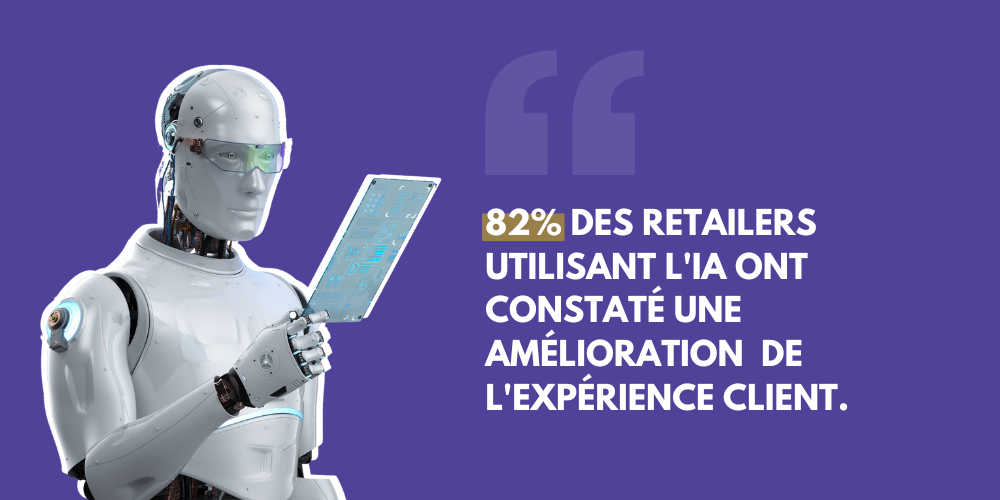It’s a fact that the use of artificial intelligence, or AI, is revolutionising the retail sector by offering unprecedented opportunities for companies to better understand consumer preferences and improve their shopping experience. In this article, we’ll explore the different ways AI is being used in retail, and the benefits and challenges it presents.

Why use AI in the retail sector?
Real-time data analysis for a better understanding of consumer preferences
AI enables retail companies to analyse data in real time to better understand consumer preferences. Data is collected from a variety of sources, such as social networks, online sales platforms, loyalty programmes and surveys. Using AI, this data is analysed to identify consumer trends and behaviours.
Companies can then use this information to personalise each consumer’s shopping experience, providing them with offers and products that meet their needs and preferences. Data can also help companies to improve the quality of their products and services, by identifying the strengths and weaknesses of their offering.
Starbucks has implemented an AI programme called ‘Deep Brew’ to analyse sales data in real time and adjust coffee production accordingly, in order to avoid coffee shortages and minimise product losses. By implementing this artificial intelligence, the famous coffee chain has been able to reduce the number of missing orders in shop by 10%, while the accuracy of its sales forecasts has increased by between 3% and 4%. In addition, the chain reported a 2% increase in in-store sales after deploying AI.
Forecasting sales and adjusting inventory for greater operational efficiency
AI also enables retailers to forecast sales and adjust inventory accordingly. This allows companies to better respond to market demand, avoid stock-outs and reduce the costs associated with excess inventory.
AI can also be used to optimise stock management processes, automating tasks such as product ordering, stock level management and sales forecasting. This allows employees to focus on higher value-added tasks, such as customer relationship management.
Improving the shopping experience in-store and online
Finally, AI can also be used in the retail sector to improve the shopping experience. In shops, AI can be used to track customer movements, identify high-traffic areas and optimise product placement. Data can also be used to personalise offers and promotions in real time, based on customer behaviour.
Online, AI can be used to personalise the shopping experience for each consumer, based on their preferences and behaviour on the website. Offers and promotions can be made in real time, based on products viewed and previous purchases.
To return to our Starbuck’s example mentioned above, the use of AI (called Deep Brew”) has also enabled Starbucks to personalise product recommendations for customers, based on their purchase history and current consumer trends. This has enabled the brand to offer a more personalised customer experience and strengthen customer loyalty, which has also helped to increase sales.
What are the challenges of using AI in retail?
Despite the many advantages of using AI in retail, there are also challenges to be anticipated.
Protection of personal data
One of the main challenges is the protection of consumers’ personal data. Companies must be transparent about the use of the data they collect and ensure that consumers’ privacy is protected.
New skills required
Another challenge is adapting the workforce to the new technologies. AI can automate certain stock management tasks, which may make some jobs obsolete. So your business needs to make sure it trains employees and helps them acquire the skills they need to work alongside the technology.
What to withhold ?
The use of AI in retail offers many benefits for businesses, including increased understanding of consumer preferences, greater operational efficiency and an improved shopping experience both in-store and online. However, it is important to consider the challenges associated with using this technology, such as protecting consumers’ personal data and adapting the workforce to new technologies.
At DJM, we are convinced that AI is an essential technology for the future of retail. So, are you ready to accelerate the growth of your business?




